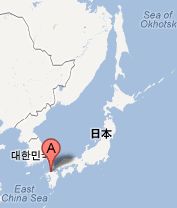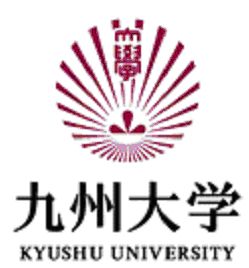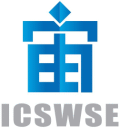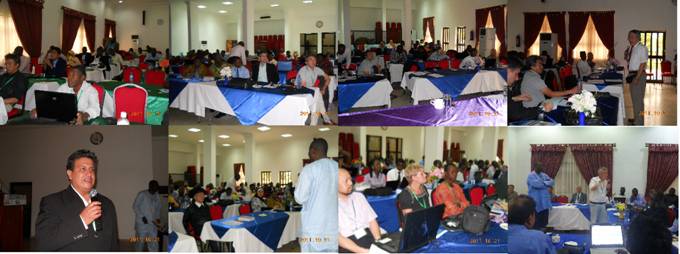
International Center for
Space Weather Science and Education
ICSWSE
 preface
preface
The history of this new center starts at a point about 20 years ago with the start of UNBSSI: United Nations Basic Space Science Initiative (1991-2012).


It was initiated by the United Nations as a long-term effort for the development of astronomy and space science through regional and international cooperation.
ICSWSE is based at Kyushu University, Fukuoka, Japan. In Japanese shall pronounce "Iku Sei"
The history of this new center starts at a point about 20 years ago with the start of UNBSSI: United Nations Basic Space Science Initiative (1991-2012).
It was initiated by the United Nations as a long-term effort for the development of astronomy and space science through regional and international cooperation. It covers an active transfer of technology and knowledge, and UNBSSI emphasizes the role of education on a worldwide basis, particularly in developing nations. To address the status of astronomy in Asia and the Pacific, Latin America and the Caribbean, Africa, and Western Asia, a series of workshops on Basic Space Science (BSS) was carried out between 1991 and 2004 in the following countries: India (1991), Costa Rica and Colombia (1992), Nigeria (1993), Egypt (1994), Sri Lanka (1995), Germany (1996), Honduras (1997), Jordan (1999), France (2000), Mauritius (2001), Argentina (2002), and China (2004). Detailed information on these workshops is available at: (http://neutrino.aquaphoenix.com/un-esa/).
In line with one of the major recommendations emanating from these workshops, the establishment of astronomical facilities in developing nations for research and education programs at the university level was initiated. (Japan became the foremost contributor of these facilities on a global basis.)
IHYPursuant to resolutions of the United Nations Committee on the Peaceful Uses of Outer Space (UNCOPUOS) and its Scientific and Technical Subcommittee, since 2005, these workshops focused on the International Heliophysical Year 2007 (IHY2007) and took place in the following countries: the United Arab Emirates (2005), India (2006), Japan (2007), Bulgaria, (2008), and the Republic of Korea (2009). More detailed information can be obtained from the website of the United Nations Office for Outer Space Affairs (UNOOSA) at: ( http://www.unoosa.org/oosa/SAP/bss/ihy2007/index.html ).
ISWIAfter deliberations at the United Nations Committee on the Peaceful Uses of Outer Space (UNCOPUOS), beginning in 2010, the workshops focused on the International Space Weather Initiative (ISWI) as part of its three-year work plan. Detailed information is available from this site. Workshops on the ISWI have been scheduled to be hosted by Egypt (2010) for the benefit of developing countries in Western Asia , Nigeria (2011) for Africa , and Ecuador (2012) for Latin America and the Caribbean .
Currently, fourteen IHY/ISWI instrument arrays with more than 600 instruments are operational in 95 countries (See "ISWI instrument distribution", on this website). In addition, to aid the global navigation satellite systems (GNSS) users community in dealing with the effects of space weather and ionospheric disturbances on GNSS performance, ISWI is supported by the programme on GNSS applications implemented by the United Nations Office for Outer Space Affairs in its capacity as the Executive Secretariat of the International Committee on GNSS (ICG). ICG is contributing to and co-sponsoring several of the ISWI activities.
2011 UN/Nigeria Workshop on ISWIIt was at this ISWI workshop (second in a series of three) where participants articulated the need for some kind of permanent facility for space weather research and education, and discussed the establishment of an international-level institution for space weather research and education.

The photos above show this discussion in progress during the workshop.
The outcome of the various deliberations at the Abuja workshop was the famous Abuja ISWI Resolution ![]() ).
).
1. United Nations General Assembly document A/AC.105/1018, "Report on the United Nations/Nigeria Workshop on the International Space Weather Initiative", page 9 of the English version, see below.
2. CSSTEAP Newsletter Vol.15, Issue 1 January 2012. (page 12). ![]() )
)
3. Space Policy Journal, Vol.28, Iss.1 (February 2012) pp.70 ![]() )
)
Additionally, this resolution is contained in a formal document from the United Nations, UN GA (United Nations General Assembly) document A/AC.105/1018 , entitled Report on the United Nations/Nigeria Workshop on the International Space Weather Initiative, which is available in the six official languages of the United Nations. Click on the language of your choice:
(1) Report on the United Nations/Nigeria Workshop on the International Space Weather Initiative (Abuja, 17-21 October 2011) (in Arabic), ![]() )
)
(2) Report on the United Nations/Nigeria Workshop on the International Space Weather Initiative (Abuja, 17-21 October 2011) (in Chinese), ![]() )
)
(3) Report on the United Nations/Nigeria Workshop on the International Space Weather Initiative (Abuja, 17-21 October 2011) (in English), ![]() )
)
(4) Report on the United Nations/Nigeria Workshop on the International Space Weather Initiative (Abuja, 17-21 October 2011) (in French), ![]() )
)
(5) Report on the United Nations/Nigeria Workshop on the International Space Weather Initiative (Abuja, 17-21 October 2011) (in Russian), ![]() )
)
(6) Report on the United Nations/Nigeria Workshop on the International Space Weather Initiative (Abuja, 17-21 October 2011) (in Spanish), ![]() )
)
The ISWI Newsletter is published by Prof. K. Yumoto
of Kyushu University, Japan, and is editted by
George Maeda of "International Center for Space Weather Science and Education"
(ICSWSE), which is located at Kyushu University.
It was started in 2009 under a mandate from the "United Nations
Office of Outer Space Affairs" (UNOOSA) -- see ![]() the letter from Prof. Hans Haubold. This letter was
distributed in Volume 1, Number 1
the letter from Prof. Hans Haubold. This letter was
distributed in Volume 1, Number 1 ![]() , of the ISWI Newsletter
on 12 November 2009.
, of the ISWI Newsletter
on 12 November 2009.
To date, more than 500 issues of this newsletter have gone out as email. If you wish to subscribe, the sign up procedure is very simple:
To unsubscribe, send a blank message to ISWInewsletter-off[at]mail-list.com
To change your email address, send a message to ISWInewsletter-change@mail-list.com with your old address in the Subject: line
Thanks to the ISWI Website (maintained by Mitko of the Bulgarian Academy of Sciences) you can view any back issue. Please go to http://www.iswi-secretariat.org/, then click on "Publications", and then click on "Newsletter Archive". There is a Table of Contents so that you can search by topic or title. The Volume number changes on January 1st, so that Volume 1 is Year 2009, Volume 2 is Year 2010, and so on. This year is Volume 6.
In December of 2013, the editor compiled all back issues to see where newsletter material comes from. The result is attached Stats for Newsletter.
Finally, the editor (George Maeda) strongly urges subscribers to recommend their friends, colleagues, and students, to also subscribe to this newsletter if they have any interest in space weather. After all, subscription is free. Also, the editor urges subscribers to send in suitable material for publication in this newsletter. Any material related to space weather is suitable! For example, you can easily publicize your workshops and other events through the ISWI Newsletter network. We currently have over 420 subscribers around the world.